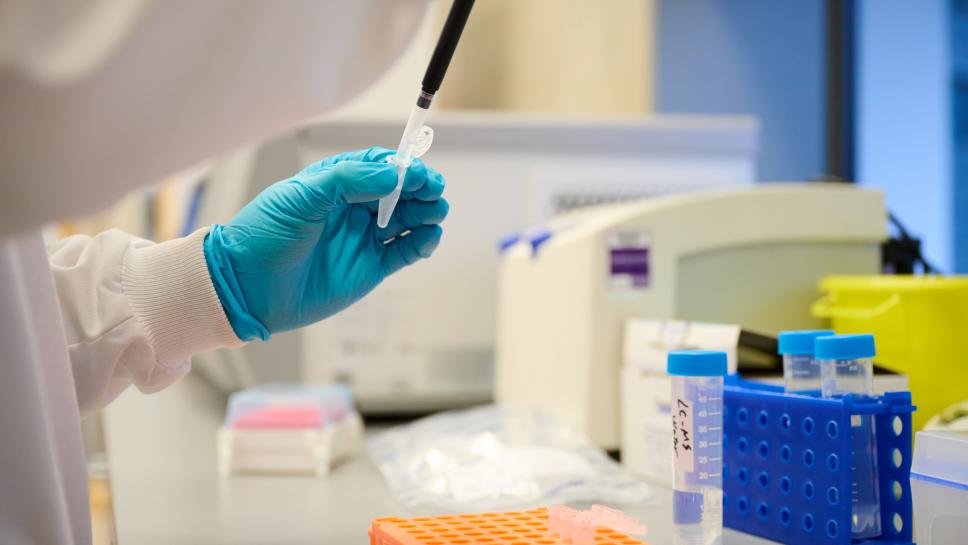
Last week I had the pleasure of attending the FSHD Society’s 30th annual International Research Congress in Milan. The meeting brought together over 100 scientists and clinical experts from around the world to discuss the latest research on FSHD.
As we mark this year’s FSHD awareness day, it is great to be able to share that there are so many researchers, clinicians and people living with the condition who are working together to accelerate our understanding and develop new treatments for FSHD.
Animal models, genetic findings biomarker studies
The first day was filled with talks about animal models, genetic findings and studies looking to find factors in the blood that can help us understand more about the progression and severity of FSHD – so called ‘biomarkers’. There were also talks about non-invasive imaging techniques such as MRI and ultrasound and how these can be informative at different stages of the condition.
There were lots of networking opportunities and I was excited to meet many of the team that form FSHD UK, including Rajeshri Badiani who leads the group. She presented a poster to demonstrate what the group has achieved so far, which you can see here. I have met with her many times on Zoom over the past couple of years, and we have learnt a lot from each other, but nothing beats having an in-person chat over a cup of coffee.
The immune system in FSHD and new treatment technologies
The second day started with talks about the immune system in FSHD and the development of new technologies that might one day lead to new treatment options for the condition.
There was a session about FSHD clinical trials in which some promising data was presented from the open-label extension of Fulcrum Therapeutics phase 2 trial of losmapimod in treating FSHD participants. At this stage of a trial both participants and doctors know everyone in the trial is receiving the actual drug and not a placebo. After 48 weeks of this extension phase, the data showed that participants had improved, or there was no decline, in a measure for hand and arm movement called ‘reachable workspace’. We also had a reminder of Fulcrum’s phase 3 clinical trial, which is looking at the safety and efficacy of losmapimod in treating participants with FSHD – the REACH trial. You can find out more about this trial here.
Protein reduction in FSHD
We also heard about Avidity Biosciences’ FORTITUDE trial, which is a phase 1/2 trial of its investigational product called AOC 1020. This aims to reduce the protein affected in people with FSHD ‒ DUX4. The main areas of the study are the safety and tolerability of the drug, but they will also be looking at several biomarkers. This study has sites in the USA only.
There was also a report on the MANOEUVRE phase 2 study by Roche, involving its RO7204239 product. This product stops a protein in muscles called myostatin. Myostatin controls muscle growth and stopping myostatin from working may help muscles grow. Alongside safety and tolerability, they
will be testing several biomarkers. Currently, this study is recruiting participants in Denmark and the USA.
Assessing personalised antioxidant supplements
We also heard about a study assessing people with FSHD in accordance with usual care performed at the university hospital of Montpellier. The study is called PERSPECTYV FSHD: PERsonalized medicine and SPECialized TherapY for better liVing with FSHD. Individuals are given personalised antioxidant supplements according to information doctors get from the patient’s own blood tests.
FSHD in children
Finally, there was a session focused on FSHD in children, an often-neglected population when it comes to studies of the condition. There was widespread agreement that there is a huge need for natural history studies and data about children. Clinical studies need to include tests and measures that are adaptable, and comfortable, for younger people to take part in, which might help encourage child participants in trials.
Project Mercury
I spent Saturday with members of the World FSHD Alliance. The Alliance was set up by the FSHD Society to bring together patient advocacy groups from across the world to share their experiences and resources, as well as to work together for the global community of people living with FSHD. We discussed a global initiative to speed the delivery of therapies for FSHD called Project Mercury. This project aims to build a global cohort of 10,000 clinical-trial-ready, well-characterised patients (patients whose natural history is wellknown); expand and optimize the world-wide clinical trial infrastructure; and remove the barriers that delay patient access to therapies once approved.
